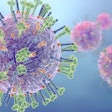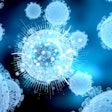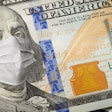
Members of a policy forum have reviewed the strengths and weaknesses of the National Institute of Health-led research response to the COVID-19 pandemic, and the lessons learned thus far.
In their review, published on Thursday in Science, they consider one of the major successes of the response to be the development and emergency use authorization of two mRNA vaccines for the SARS-CoV-2 virus in just 11 months from the first identification of the pathogen; most vaccines take at least a decade to develop.
Further successes in the COVID-19 research effort included improving diversity in clinical trials and prioritizing the evaluation of therapeutic agents, which enabled the rapid development of monoclonal antibodies and antiviral drugs.
Streamlining diagnostic test development was also essential in leading to the rapid roll-out of crucially-needed COVID-19 tests to the public, which played a large role in mitigating SARS-CoV-2 transmission.
The authors divided their recommendations resulting from the COVID-19 pandemic into three categories. Under the first category -- supporting science -- they recommended the following actions:
- Investing broadly in basic virology, structural biology, genomics, molecular biology, immunology, and epidemiology to build fundamental knowledge
- Supporting local and global surveillance to achieve the earliest possible detection of an emerging pathogen
- Developing vaccines, therapeutics, and diagnostics for the most likely future pathogens; sustaining large-scale global clinical trial networks to be ready when needed
- Ensuring immediate public release of research results
- Supporting partnerships between community organizations and scientists
- And finally, investing in behavioral research to develop effective ways of addressing vaccine hesitancy and combating misinformation.
Under the second category -- responding when a pandemic pathogen emerges -- the authors recommended the following actions:
- Engaging research and development partners to bring vaccines, drugs, and diagnostics to people worldwide
- Forging data transparency agreements among research partners; developing master protocols for clinical trials
- Obtaining substantial resources for developing vaccines, therapeutics, diagnostics, and clinical trials
- Ensuring prepurchase agreements to alleviate industry risk; requiring trial participant diversity for equity and scientific credibility
- Shortening clinical trial timetables
Finally, under the third category -- moving research findings into the clinic -- they suggest the following actions:
- Involving regulators to avoid costly missteps; establishing guidelines systems to translate research findings into clinical practice
- Developing creative, rapid-response communications networks that clarify the provisional nature of scientific conclusions, while using all media to provide accessible, accurate public information to motivate rational decision-making, especially in underserved communities.
The authors noted the need for an entire community to respond swiftly and effectively to rapidly emerging public health challenges, and that the COVID-19 pandemic required the coordinated efforts of thousands of researchers, healthcare workers, and community partners, provided with the resources they needed.
"Perhaps the most valuable lesson that COVID-19 has taught the research community -- and hopefully society more broadly -- is the importance of collective effort and continuous investment in basic and applied research," write the researchers. "We must sustain our current focus on pandemic preparedness and resist the temptation to slip back into complacency."



















